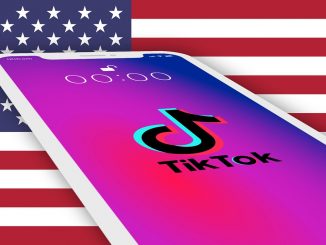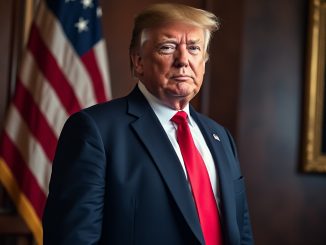
TikTok has made a significant legal move to stave off a potential ban in the United States, warning that such action would have dire economic consequences for both small businesses and content creators. According to a court filing reported by CNBC, if TikTok were to be effectively shut down as of January 19, U.S. small businesses and creators could lose $1.3 billion in earnings and revenue in just the first month. This warning comes as part of TikTok and its parent company ByteDance’s strategy to challenge a law aimed at national security concerns linked to ByteDance’s Chinese ownership.
Blake Chandlee, TikTok’s president of global business solutions, emphasized in the filing that this financial impact would only grow should the shutdown extend beyond a month. The company is seeking a temporary injunction from a federal appeals court to block the law, which would force app stores like those operated by Apple (AAPL) and Google (GOOGL, GOOGL), along with internet providers, to cease supporting TikTok unless ByteDance divests from the app.
The legal battle has already seen TikTok and ByteDance appeal to the U.S. Court of Appeals for the District of Columbia Circuit, which upheld the law. Now, they are preparing to take their case to the U.S. Supreme Court, arguing for the right to continue operations while the highest court decides whether to review the case. This move is not just about maintaining business as usual but also about giving the incoming administration under President-elect Donald Trump, set to be sworn in on January 20, the chance to reassess the enforcement of this law.
Chandlee’s declaration underscores the economic stakes involved. He pointed out that nearly two million U.S. creators would face a collective loss of almost $300 million in earnings, while TikTok itself would see a significant reduction in its global advertising revenue. Additionally, the platform’s role in U.S. commerce is substantial, with over 7 million U.S. accounts using TikTok for business purposes. An economic impact report by Oxford Economics cited by Chandlee highlights that 69% of these businesses experienced sales growth through TikTok, with 39% stating that the platform is critical to their survival.
The broader economic contribution of TikTok, including advertising, marketing, and organic reach, reportedly added $24.2 billion to U.S. GDP in 2023, with TikTok’s operations contributing an additional $8.5 billion. This economic argument is central to TikTok’s defense against the ban, portraying the platform as more than just a social media app but as a vital part of the U.S. economy.
The law in question was enacted after Congress and President Joe Biden expressed concerns over ByteDance’s ties to the Chinese government. However, the appeals court rejected claims that the ban would infringe on First Amendment rights, deeming the law narrowly tailored to address national security issues. Despite this, TikTok remains hopeful that legal challenges might yet alter the course of actions against it, emphasizing both the cultural and economic roles it plays in American life.
- Bulenox: Get 45% to 91% OFF ... Use Discount Code: UNO
- Risk Our Money Not Yours | Get 50% to 90% OFF ... Use Discount Code: MMBVBKSM
Disclaimer: This page contains affiliate links. If you choose to make a purchase after clicking a link, we may receive a commission at no additional cost to you. Thank you for your support!




Leave a Reply